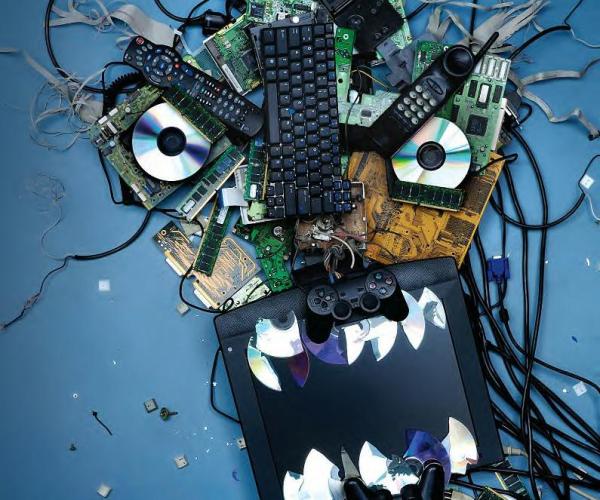The Ups And Downs Of Social Networking

Recently, however, I’ve read a fair few articles from people voicing their reactions against these social sites. In The Sunday Telegraph today there’s an article concerning the perils of social networking, with the Archbishop of England and Wales claiming that sites such as Facebook promote “transient relationships” – the breakdown of which can cause trauma in a young person’s life. He says: “It’s an all or nothing syndrome that you have to have in an attempt to shore up an identity – a collection of friends about whom you can talk and even boast. But friendship is not a commodity, friendship is something that is hard work and enduring when it’s right.”
First of all, I think it’s crucial to point out that I’m not in the “Ban Facebook, it’s evil!” club. I’m not so short sighted as to be blind to the positives that can come from social websites. The archbishop mentions in the article that the collapse of these friend groups can lead teenagers to suicide – and that may be a valid point. But when you think about it, Facebook and Myspace are probably a dream come true for those lonely, socially awkward people who are ignored at school, who have trouble getting noticed in the outside world. A few years ago, they’d probably have had no where to turn, no way of having their voices heard. Now, surely they must gain some comfort from interacting with people, even if it is through a screen? Of course there are positives and negatives to this. The positive I’ve already mentioned. The darker side to it is that a dependency on social networking may result in that person never being able to confront their fears and never becoming socially confident at all. It’s a very tricky subject to take one line of argument on.
Secondly, I agree with his comments on friendship, and how treating people as merely numbers you can use to prove your popularity is the sign of a pretty shallow person, but that part about transient relationships raises the question; aren’t all relationships transient? Regardless of whether we meet someone in “real life” or on the internet, we have no way of holding onto them indefinitely. Our time with them is subject to how long they’re willing to stick around in the same city, how long we’re willing to do the same, whether the two of us ever form a strong connection as friends, and about a dozen other factors. People pass in and out of our lives: some are here for the long haul, and some are simply popping in to say “Hi” before moving on. That’s a part of life, and social networking has very little influence over that.
The archbishop goes on to say: “We’re losing social skills, the human interaction skills, how to read a person’s mood, to read their body language, how to be patient until the moment is right to make or press a point. Too much exclusive use of electronic information dehumanises what is a very, very important part of community life and living together.”
This is something I do agree with quite strongly. I think, as well as putting a sort of barrier between people and reducing interaction to a series of quick-witted messages fired off a computer keyboard, the internet allows us in many ways to project whatever image we want. You can’t really blame the internet for being misleading, as we’re the ones who ultimately decide how we operate as people, but having this tool that allows us to be anybody has the potential to be detrimental to all parties involved. Have you ever spoken to somebody online who seemed incredibly confident, witty, talkative, and generally great? Now, how many times do those sorts of people turn out to be quiet, shy and withdrawn when you meet them in person? It’s happened quite a few times that I can recall, and I think it’s a sign that the internet can open up endless possibilities for a kind of personality duplicity.
I’ve never been swayed by people who worry endlessly and say “But you don’t know who you’re meeting off the net, it could be anyone!” – because, essentially, we never know who we’re meeting in any situation. Your next door neighbour could be a murderer – the internet doesn’t make it any more probable that you’ll run into someone dangerous (as long as you have an ounce of common sense, of course). But the point is, at least when meeting people in person, we’re able to read their body language, we can tell straight away whether they’re shy, or confident, talkative or quiet, friendly or cold. What the internet does allow for is people not being themselves, and that’s something quite damaging, both to the person being fooled at the receiving end, and also to the person trying to make themselves into somebody they’re not.
Want to have your say? Leave a comment!
About this entry
You’re currently reading “The Ups And Downs Of Social Networking,” an entry on blue horse
- Published:
- August 2, 2009 / 4:33 pm
- Category:
- Discussion, Social Networking
- Tags:
- debate, Discussion, Facebook, internet, Myspace, Poetry, Social Networking, young poets

2 Comments
Jump to comment form | comment rss [?] | trackback uri [?]